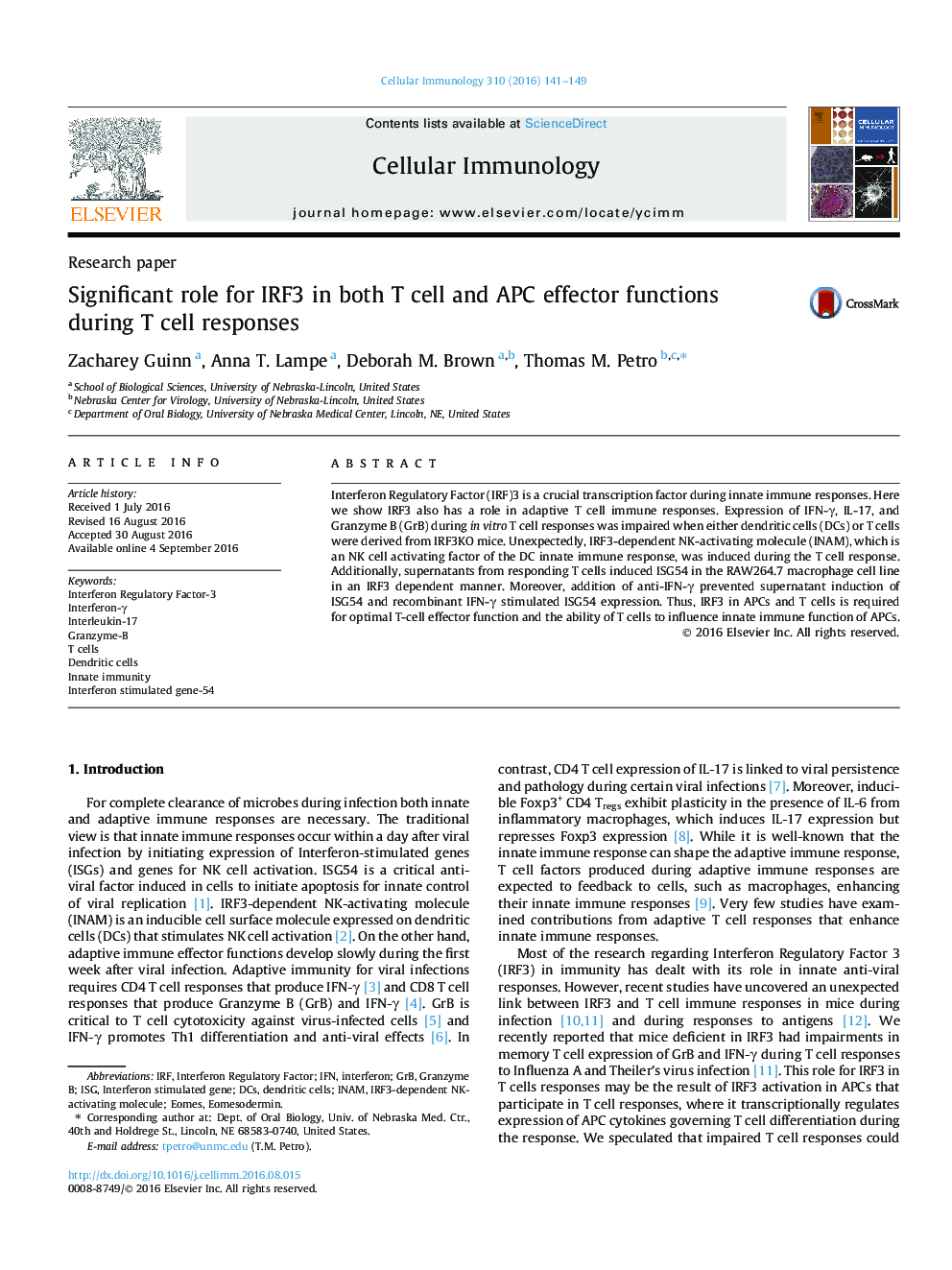| Article ID | Journal | Published Year | Pages | File Type |
|---|---|---|---|---|
| 5530727 | Cellular Immunology | 2016 | 9 Pages |
â¢IRF3 is required in both T cells and APCs for optimal T cell effector function.â¢IRF3 dependent innate immune factors of APCs are induced during T cell responses.â¢IFN-γ from T cells induces ISG54 in macrophages in an IRF3 dependent manner.
Interferon Regulatory Factor (IRF)3 is a crucial transcription factor during innate immune responses. Here we show IRF3 also has a role in adaptive T cell immune responses. Expression of IFN-γ, IL-17, and Granzyme B (GrB) during in vitro T cell responses was impaired when either dendritic cells (DCs) or T cells were derived from IRF3KO mice. Unexpectedly, IRF3-dependent NK-activating molecule (INAM), which is an NK cell activating factor of the DC innate immune response, was induced during the T cell response. Additionally, supernatants from responding T cells induced ISG54 in the RAW264.7 macrophage cell line in an IRF3 dependent manner. Moreover, addition of anti-IFN-γ prevented supernatant induction of ISG54 and recombinant IFN-γ stimulated ISG54 expression. Thus, IRF3 in APCs and T cells is required for optimal T-cell effector function and the ability of T cells to influence innate immune function of APCs.
